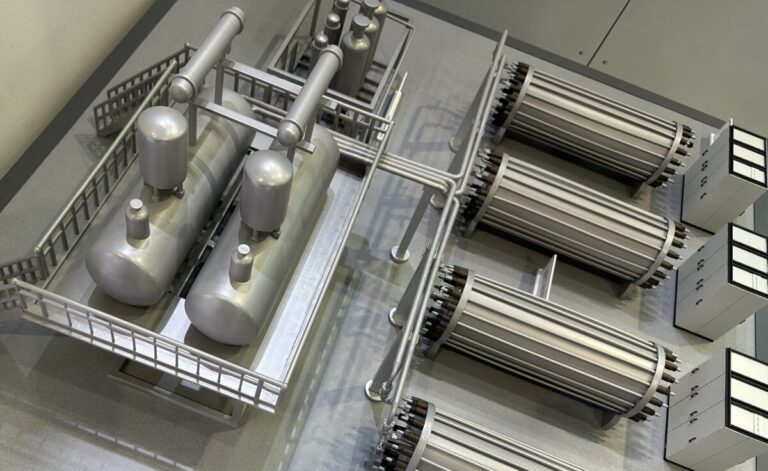Rolls-Royce has started developing a hydrogen combustion engine for combined heat and power (CHP) systems in Germany, while Lhyfe has installed a 1 MW electrolyzer for Deutsche Bahn.
Rolls Royce has started developing technologies for a “first of its kind” hydrogen combustion engine to power combined heat and power (CHP) systems. Company said that within the framework of the Phoenix project (funded by the German government), the consortium aims to match the power density and efficiency of current natural gas CHP units, up to 2.5 MW. The project will receive almost €5 million ($5.36 million) in funding from the German government and involves partners such as the Institute for Sustainable Mobile Propulsion Systems at the Technical University of Munich, Mahle Konzern, Fuchs Lubricants Germany, the German Federal Institute for Materials Research and Testing (BAM) and Robert Bosch.
Canada introduced the first four clean economy investment tax credits, including the Carbon Capture, Use and Storage (CCUS) ITC and the Clean Hydrogen ITC. The Canadian government said the CCUS ITC supports taxable Canadian businesses that make eligible expenditures on qualified CCUS projects. The Clean Hydrogen ITC provides a refundable tax credit of 15 to 40 percent for investments in hydrogen production projects, with priority given to projects that produce the cleanest hydrogen. Equipment that converts hydrogen into ammonia for transport purposes may also qualify.
Lhyfe has built a 1 MW electrolyzer in a green hydrogen production plant for Deutsche Bahn in Tübingen, Germany. The electrolysis plant, which has an annual production capacity of up to 30 tons, uses green energy from Deutsche Bahn’s green energy portfolio. “DB Energie is testing new technologies for a sustainable energy supply by rail at the Tübingen innovation center, including in the “H2goesRail” project. said the French hydrogen company. “With the green hydrogen produced, a climate-neutral hydrogen train will be deployed this year on a test route in Baden-Württemberg – between Tübingen, Horb and Pforzheim.”
Bergen engines said its natural gas engines can do that now suitable for a 25% hydrogen mixture without modification. “Building on the successful commercialization of a 15% hydrogen blend in 2022, this progress marks an important step towards greener and more sustainable energy solutions for land and maritime applications.” said the Norwegian company.
This content is copyrighted and may not be reused. If you would like to collaborate with us and reuse some of our content, please contact: editors@pv-magazine.com.


